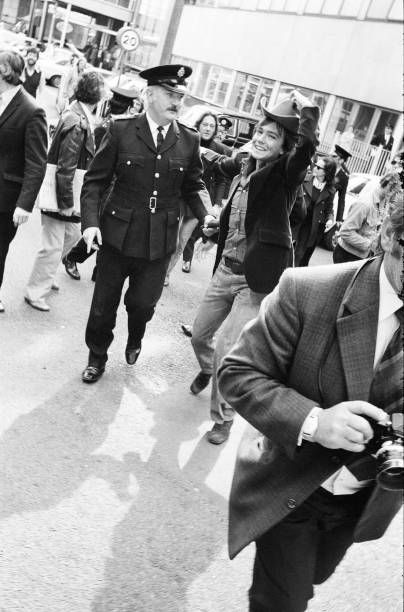
A Melancholy Echo of Lost Innocence: “Echo Valley 2-6809” and the bittersweet symphony of teen stardom.
Ah, The Partridge Family. The very name conjures up images of sunshine, bell-bottoms, and that iconic multi-colored bus traversing the highways of our youthful dreams. For many of us, especially those of a certain vintage, their music was the soundtrack to Saturday mornings, a comforting presence emanating from our television sets. And among their discography, a particular gem stands out, often overlooked in favor of their more boisterous hits: “Echo Valley 2-6809.” This wasn’t a chart-topper in the same vein as “I Think I Love You,” which famously hit number one on the Billboard Hot 100 in 1970, nor did it possess the sheer infectious joy of “Doesn’t Somebody Want to Be Wanted.” Instead, “Echo Valley 2-6809” quietly made its mark, reaching a respectable number 40 on the Billboard Hot 100 in the spring of 1971. Its story, much like the song itself, is a tapestry woven with threads of youthful yearning, the illusion of fame, and a subtle undercurrent of melancholy that, in retrospect, feels remarkably poignant.
The song appeared on their second album, Up to Date, released in 1971, a period when The Partridge Family was at the absolute zenith of their popularity. The television show, starring the effervescent Shirley Jones as the matriarch Shirley Partridge and the heartthrob David Cassidy as her eldest son Keith, was a cultural phenomenon. It was a show about family, about music, and about the innocent adventures of a singing group touring in their psychedelic bus. Yet, even amidst this vibrant facade, “Echo Valley 2-6809” offered a glimpse into something a little more nuanced, a little less straightforward.
At its core, “Echo Valley 2-6809” is a wistful ode to a telephone number, a portal to a lost love, or perhaps, a yearning for connection that feels just out of reach. The lyrics paint a picture of someone clinging to a memory, a telephone number etched into their mind, hoping to bridge the chasm of separation. “Every time I hear the phone ring / I get a feeling that it might be you,” sings David Cassidy, his voice imbued with that familiar blend of boyish charm and an almost palpable ache. The “Echo Valley” itself feels less like a geographical location and more like a metaphorical space – a valley where echoes of the past still resonate, a place where memories linger, and hopes, however faint, persist. The phone number, specific and tangible, becomes a symbol of a forgotten connection, a tangible link to a moment in time that can’t be recaptured. For those of us who grew up in an era before instant messaging and omnipresent cell phones, the telephone number held a special significance. It was the key to communication, a direct line to hearts and minds, and its loss or fading memory could feel profoundly isolating.
Beyond its immediate narrative, “Echo Valley 2-6809” carries a deeper, more reflective meaning, especially when viewed through the lens of time. For many of us who adored The Partridge Family during our formative years, the song now evokes a bittersweet nostalgia. It speaks to the fleeting nature of youth, the impermanence of certain relationships, and the quiet ache of unfulfilled desires. The carefully constructed image of The Partridge Family as a perpetually happy, harmonious unit, while undeniably charming, belied the complexities and pressures faced by the young actors, particularly David Cassidy. His own struggles with the intensity of his fame and the blurring lines between his public persona and private self are well-documented. In this context, “Echo Valley 2-6809” can be heard as a subtle whisper of that underlying vulnerability, a quiet moment of introspection amidst the cheerful pop façade. It’s a reminder that even in the sunniest of fabricated worlds, there are pockets of longing and remembrance.
Listening to it today, it’s not just a song about a forgotten phone number; it’s a portal to a specific time in our lives. It’s the scent of freshly cut grass on a summer evening, the hum of a television set in a dimly lit living room, the innocent hopes and heartaches of a generation coming of age. It’s the echo of our own youth, a gentle reminder of the moments and connections that, like a faded telephone number, remain etched in the quiet corners of our memory, sometimes only to be reawakened by a familiar melody. And that, dear friends, is the enduring magic of a song like “Echo Valley 2-6809.” It reminds us that even the simplest tunes can carry the weight of a thousand untold stories, waiting to be heard by those willing to truly listen.